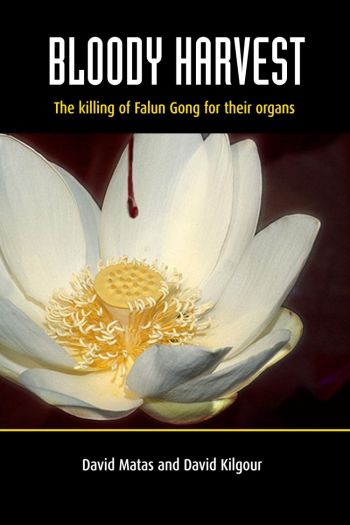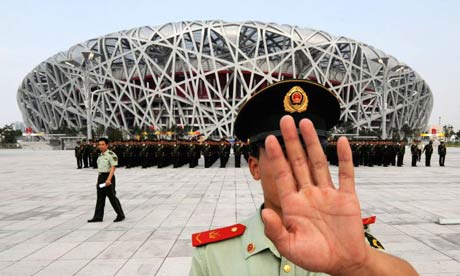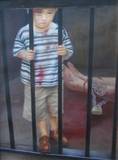Sorry, the comment form is closed at this time.
Status of Chinese People
About China and Chinese people's living condition
China Organ Harvesting Report, in 19 languages
Torture methods used by China police
Censorship
Massive protests & riots in China
Top 9 Posts (In 48 hours)
- China’s long history of harvesting organs from living political foes
- Gao Zhisheng Released With Broken Teeth, Wife Fears Husband Tortured
- China's Dissident Lawyer Gao Zhisheng Released From Prison But Under Close Surveillance
- Zhou Yongkang’s son arrested for illegal business operations
- Underestimating Bad Faith: Quiet Diplomacy and its Limits- The EU’s and China
- China Announces Arrest of Zhou Yongkang, Former Security Tsar
- "Highly sophisticated Chinese state-sponsored" cyberattack hits Canada Government's top research organization
- New Book "Vaginal Coma" Exposes Inhuman Sexual Torture in China's Masanjia Labor Camp
- China's demolition campaign against Christian Cross hits two more churches
All Topics
Books to Read
1. A China More Just, Gao Zhisheng
2.Officially Sanctioned Crime in China, He Qinglian
3. Will the Boat Sink the Water? Chen Guidi, Wu Chuntao
4. Losing the New China, Ethan Gutmann
5. Nine Commentaries on The Communist Party, the EpochtimesDid you know
Reporters Without Borders said in it’s 2005 special report titled “Xinhua: the world’s biggest propaganda agency”, that “Xinhua remains the voice of the sole party”, “particularly during the SARS epidemic, Xinhua has for last few months been putting out news reports embarrassing to the government, but they are designed to fool the international community, since they are not published in Chinese.”
RSS Feeds for Category
Feed address for any specific category is Category address followed by 'Feed/'.
-
Join 222 other subscribers
Anti-censorship
Arts
Campaign
China blog
Environmental
Human Rights Organizations
- 64TianWang
- ABOTA
- Amnesty (Asia)
- Amnesty International
- Cardinal Kung Foundation
- China Aid
- China-labour.org.hk
- chinalaborwatch.org
- Chinese Human Rights Defenders
- COHRE
- Committee to Protect Journalists
- Conscience Foundation
- Doctors against Organ Harvesting
- EHRC
- Falun Info Center
- Freedom House
- Human Rights in China
- Human Rights Watch
- Human Rights without Frontiers
- IFEX.org
- Index on Censorship
- International Campaign for Tibet
- International Society for Human Rights
- Monitor China
- Reporters Without Borders
- Society for Threatened Peoples
- The Center
- World Association of Newspapers
- World Human Rights
- World Press Freedom Committee
- Writers in Prison
- www.flghrwg.net
- www.tchrd.org
Medias
- Asia News, The Independent
- Asia Times
- BBC
- Business Week
- Canada Free Press
- Central News Agency (Taiwan)
- China Post (Taiwan)
- Daily Telegraph (Australia)
- Earth Times
- Epoch Times
- Financial Times (UK)
- Forbes (U.S.)
- National Post (Canada)
- NTDTV News
- PR Newswire
- Radio Free Asia
- Radio Free Europe
- Radio Netherlands
- Reuters
- Secret China
- Sound of Hope Radio
- Special Report China, The Guardian
- Taipei Times
- The Age (Australia)
- The Observer
- The Times
- VOA News
- Wall Street Journal
- Washington Post
- Washington Times
Petitions
Photo Album
Reports
Research Organizations
~ Blogrolls
- A Man with a Flashlight
- A True Chinese Renaissance
- Alessio in Asia
- Anonymous® Radio Show
- Art of Celebrating Life
- Artist Thinker
- Asia blog (1)
- Asia blog (2)
- Bekka Poo’s Worldview News
- Belisarius.CA
- Blogarama
- Bloggar

- Bloggeries-Blog review
- Bloggong For a Free World
- Caring For Every Nation
- CARLOS, TIGRE SIN TIEMPO
- Coffee talk for a FREE CUBA
- Collection of Gao Zhisheng's Open Letters and Articles
- Cristy Li
- Den of Hydralisks
- Drywind.net
- El Gweilo Intrepido
- El mundo de NuVoL
- Enigma Foundry
- eVenus blog
- Expat Blog
- Information About China And The Chinese
- Interesting Times
- Jackie Tam
- Les Tontons Blogueurs
- Living on Purpose
- Me Own Blog
- Missional Experiences
- Missional Reflexions
- Mommy Zabs
- Next Gener.Asian Church
- Old Fart In Training
- Old Ford Road
- Oldephartte
- Quirk
- San’s Occasionals
- Scottish Blogger
- Spanish Pundit
- Stranded on the Largest Island
- The Global Community Tribunal
- The Human Rights Revolution Platform
- The Modern Warrior
- The Sky Before Dawn
- The State Of the Oldest Nation
- The View from Taiwan
- Truth Lies and Character
- UFO Online
- Une Belette en Chine
- Voice of Reason





Video: Part 1, Nine Commentaries on the Communist Party
Posted by Author on July 26, 2007
This is the first of Nine Commentaries on the Communist Party, by The Epoch Times, Dec 09, 2004-
On What the Communist Party Is
Foreword
For over five thousand years, the Chinese people created a splendid civilization on the land nurtured by the Yellow River and Yangtze River. During this long period of time, dynasties came and went, and the Chinese culture waxed and waned. Grand and moving stories have played out on the historical stage of China.
The year 1840, the year commonly considered by historians as the beginning of China’s contemporary era, marked the start of China’s journey from tradition to modernization.
Chinese civilization experienced four major episodes of challenge and response. The first three episodes include the invasion of Beijing by the Anglo-French Allied Force in the early 1860s, the Sino-Japanese War in 1894 (also called “Jiawu War”), and the Russo-Japanese War in China’s northeast in 1906.
To these three episodes of challenge, China responded with the Westernization Movement, which was marked by the importation of modern goods and weapons, institutional reforms through the Hundred Days’ Reform in 1898 [1] and the attempt at the end of the late Qing Dynasty to establish constitutional rule, and later, the Xinhai Revolution (or Hsinhai Revolution) [2] in 1911.
At the end of the First World War, China, though it emerged victorious, was not listed among the stronger powers at that time. Many Chinese believed that the first three episodes of response had failed. The May Fourth Movement [3] would lead to the fourth attempt at responding to previous challenges and culminate in the complete westernization of Chinese culture through the communist movement and its extreme revolution.
This article concerns the outcome of the last episode, which is the communist movement and the Communist Party. Let’s take a close look at the result of what China chose, or perhaps one can say, what was imposed on China, after over 160 years, nearly 100 million unnatural deaths, and the destruction of nearly all Chinese traditional culture and civilization. (……more details……)
>> Video: Part 2, Nine Commentaries on the Communist Party – On the Beginnings of the Chinese Communist Party
Related:
– Video: Nine Commentaries on the Communist Party
– Official website of Nine Commentaries on the Communist Party
Rate this:
Share this:
Related
This entry was posted on July 26, 2007 at 12:24 am and is filed under Asia, China, Chinese Culture, Commentary, Communist Party, Culture, history, Nine Commentaries, Politics, Report, Social, Special report, Video, World. You can follow any responses to this entry through the RSS 2.0 feed. Both comments and pings are currently closed.